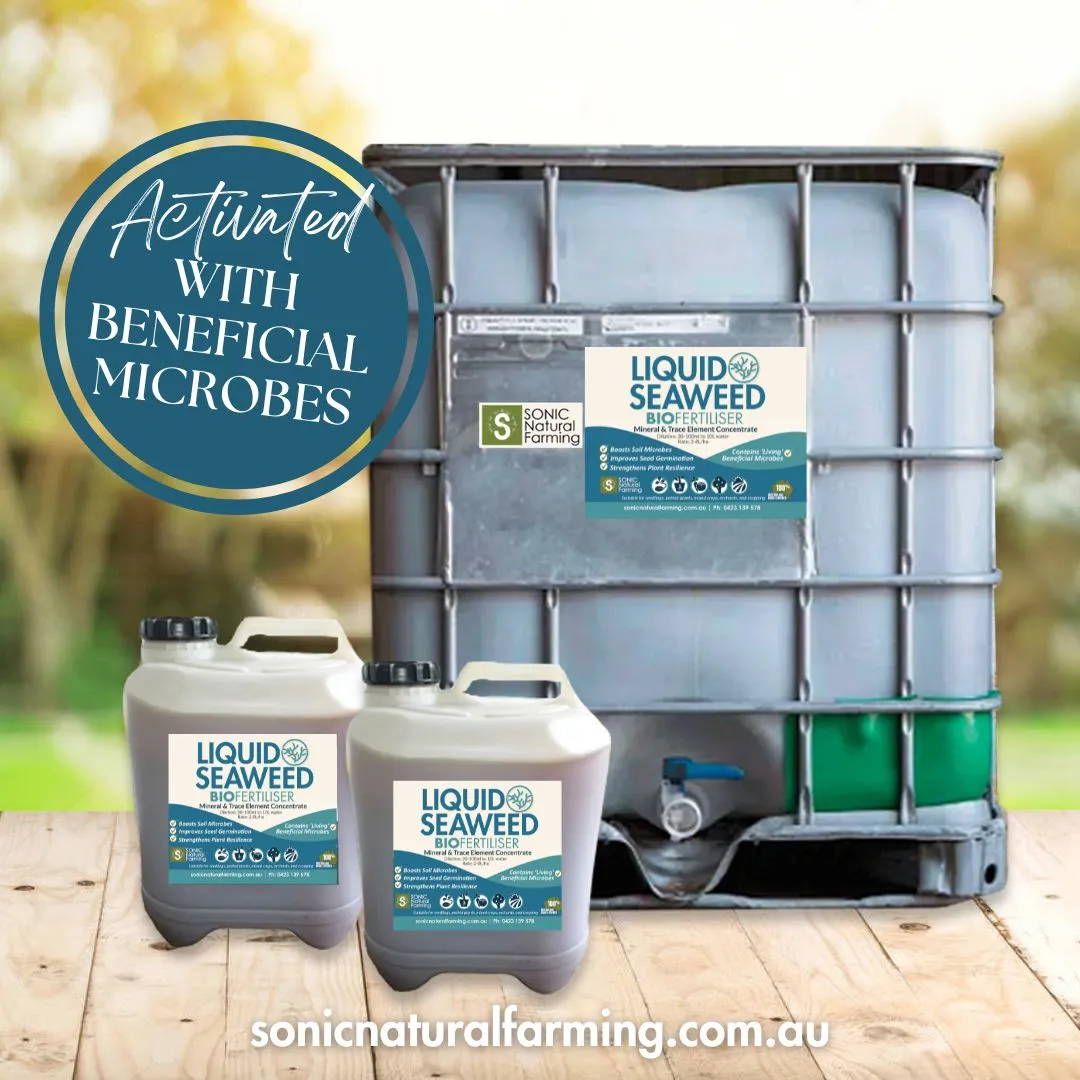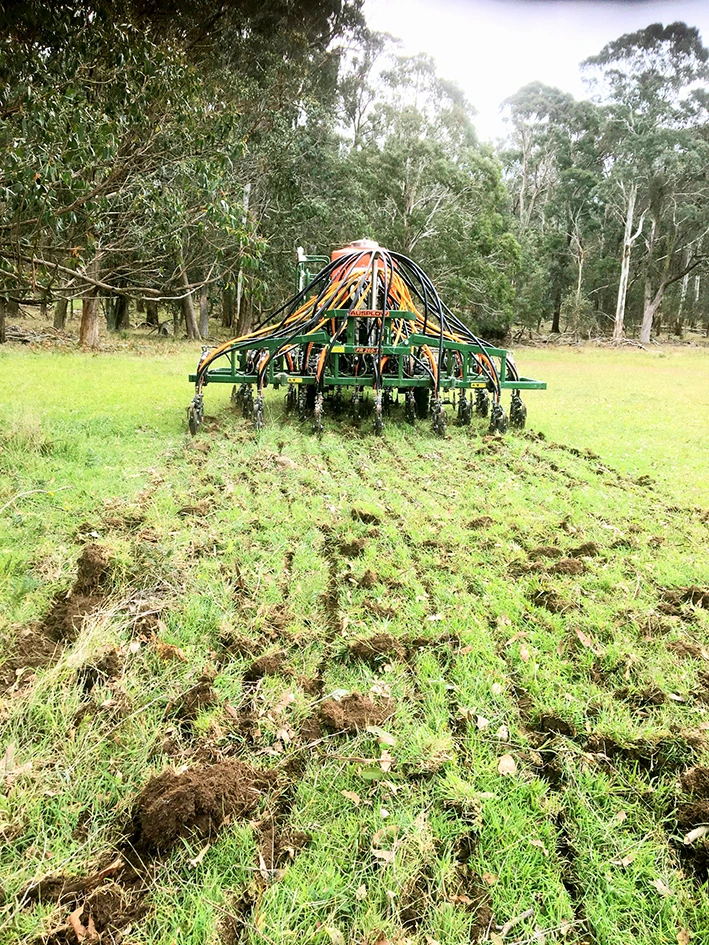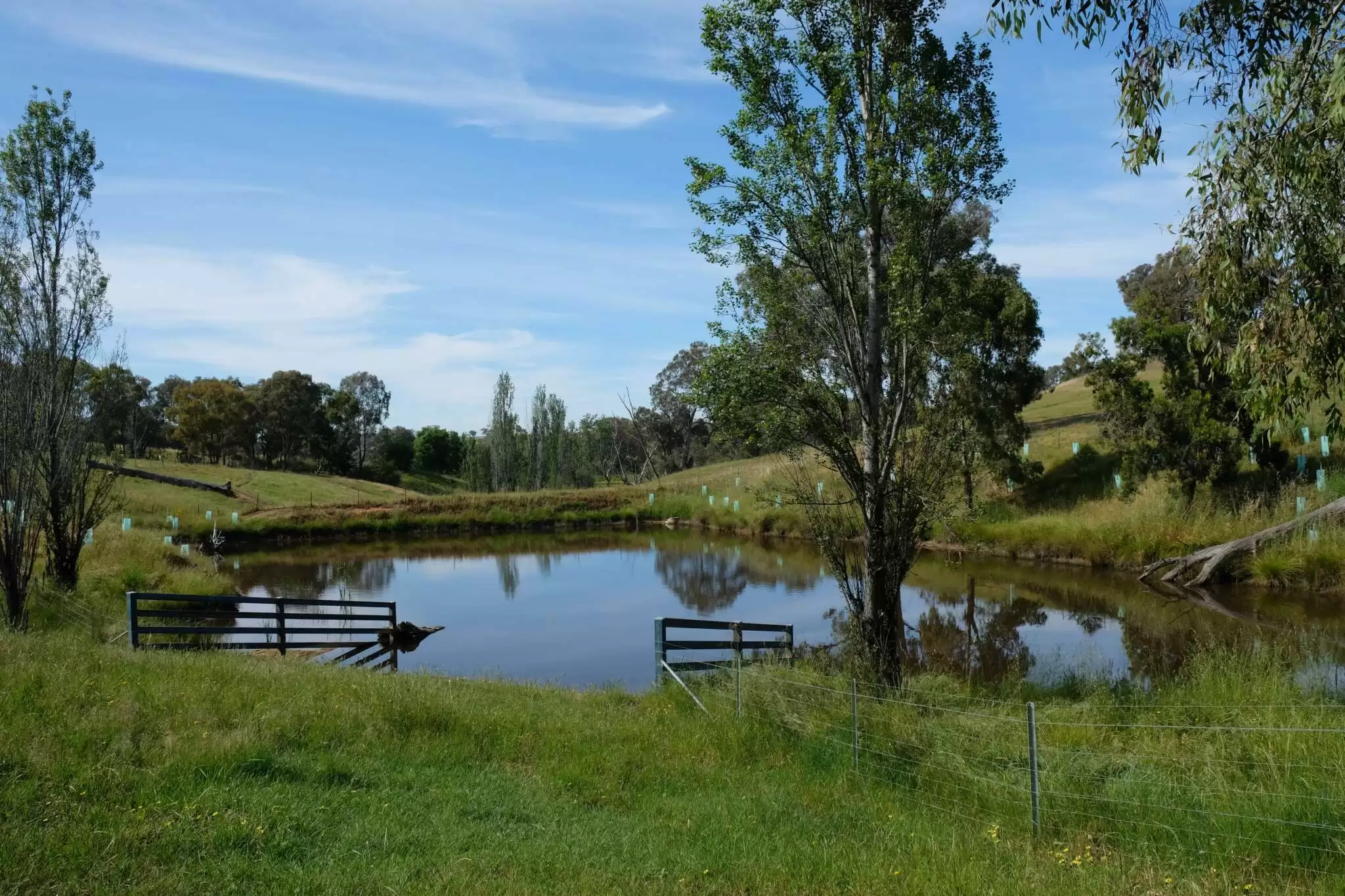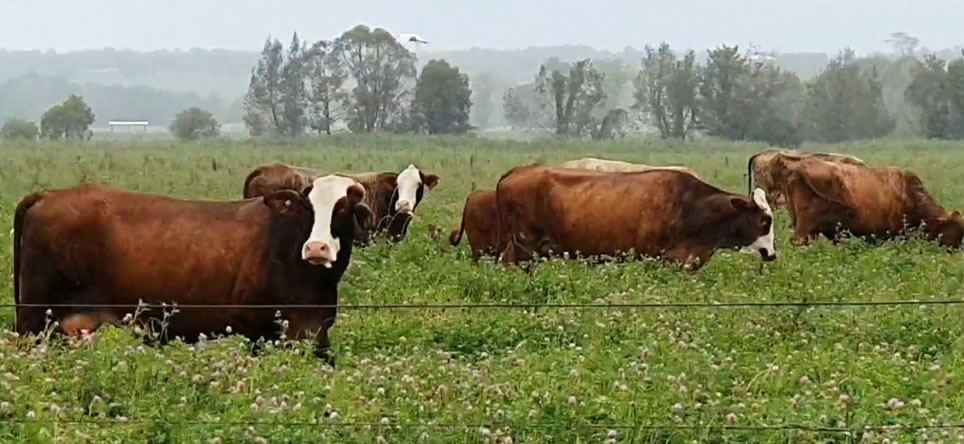Farmers Reviews
Explore Aussie Farmers using SONIC Biological Solutions on their farms.
Valley View Pecans
Cooyal, NSW, Australia
Wayne and Sue Green manage their 16-hectare pecan farm near Mudgee, NSW, and in July 2023, they began applying SONIC’s Liquid Fish and Seaweed Biological Fertiliser. Processed right on their farm using their DIY SONIC Production System, they implemented biological soil amendments to improve soil health and boost tree growth.
We caught up with Wayne and Sue to hear about the exciting results they’re seeing—from healthier, “fat” sheep to noticeably improved soil health and thriving pecan trees.
Want to see how their farm is thriving? Watch the video to check out the impressive progress at Valley View Pecans ↑
You really can see the difference, just driving up the road. We’re happy, and it has actually saved us a lot of money on extra fertilisers.
Kilburney Avocado Farm
Central Coast, NSW, Australia
Kilburney Farm, a thriving family-owned operation, produces commercial poultry alongside 5 hectares of flourishing avocado trees, first planted in October 2018.
Committed to regenerative farming principles, the farm has embraced a holistic approach in its avocado and citrus orchards—utilising multi-species cover crops, mulching, and the application of SONIC Liquid Seaweed Biofertiliser and Fish Hydrolysate Fertiliser, all produced on-site.
From the moment the avocado trees were planted, the management team noticed how well the trees took to their new environment, thanks in part to the preparation of mounded soil, enhanced with Liquid Biological Fertiliser.
This careful focus on building soil health and fertility has paid off—Kilburney Farm has relied solely on SONIC Biological Fertilisers since 2018, avoiding synthetic inputs and weed sprays entirely.
As a result, the avocado trees have remained disease-free and have been producing nutrient-dense fruit as early as the second season after planting. This sustainable approach not only nurtures the soil but also ensures a healthy, nutrient dense crop year after year.
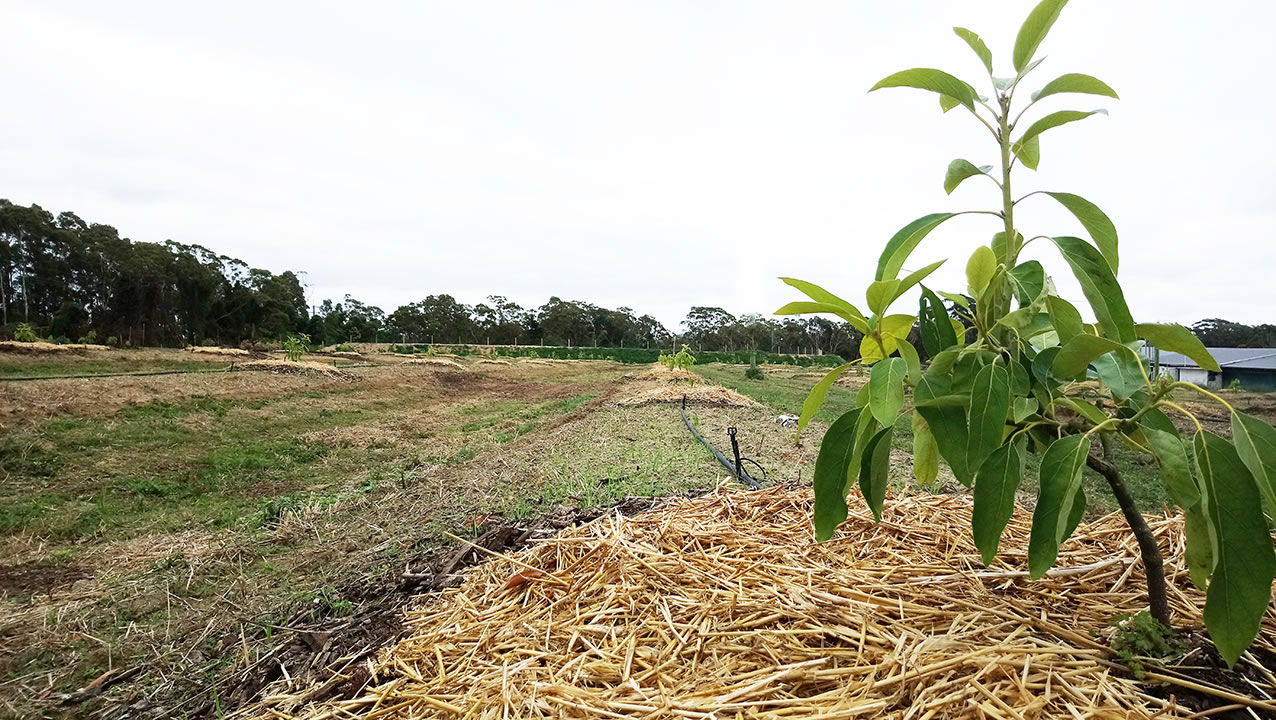
Avocado Tree planting 2018
5 ha avocado trees planted on mounds with hay mulch. Irrigated and seeded with mixed cover crop seeds in between trees. Fertiliser inputs include SONIC Fish Hydrolysate and Seaweed Biological Fertiliser.

2020
The avocado farm maintained mulching as required, applying approximate 4 month applications of SONIC Liquid Seaweed Biological Fertiliser and Fish Hydrolysate Fertiliser. Avocado trees have shown no signs of disease or blemishes on fruit.

2023
Kilburney avocado farm maintains cover crops by slashing/mulching. No signs of disease on the avocado trees, or blemishes on the fruit.
At Kilburney Farm, the family runs their own SONIC DIY System to produce Liquid Fish and Seaweed Biological Fertiliser, cutting out shipping and storage costs.
This efficient on-farm system ensures fresh, high-quality fertiliser tailored to their needs, reducing expenses and supporting their sustainable practices.
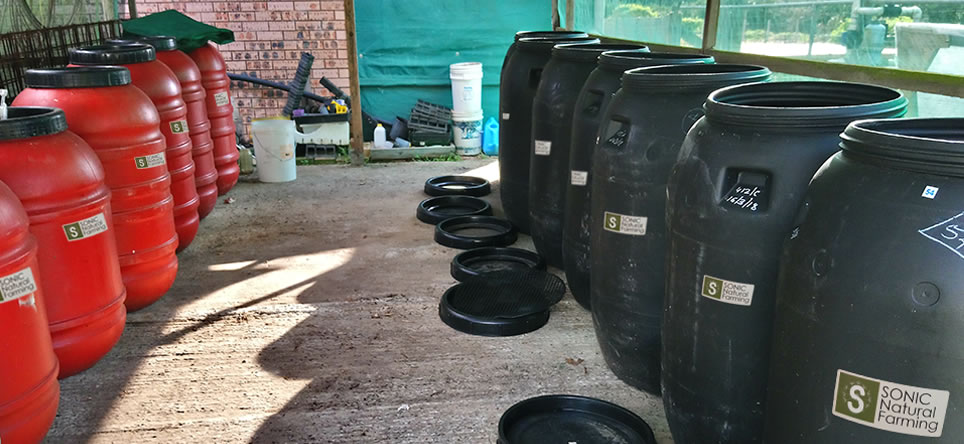
Since we started using SONIC Biological Fertiliser, in 2018, we’ve reduced our running costs, and seen nothing but happy healthy avocado trees.
Tom and Carolyn Reeve – Mirum Creek Organics
Upper Orara, NSW, Australia
Tom and Carolyn from Mirum Creek Organics, near Coffs Harbour, NSW, have been producing certified organic garlic, ginger, turmeric and lemongrass for 12 years, and talk about their goal producing happy produce.
“We like to call our fresh produce “happy food” because our focus is to provide great soil, and all the nutrients and biology for the plants, to grow the way they want – thus happy!”
“If I give the soil the right nutrition, and I allow the complexity and the diversity in the soil, then the plants are going to be happy. They are not going to be stressed.”
Watch the video above ↑ to hear from Tom at Mirum Creek Organics as he shares his insights on regenerative farming methods and the soil inputs that are transforming his farm.
There’s a lot of nutrients available in the ocean that are not available on the continent of Australia. We can bring them back by using things like fish hydrolysate and seaweed.
Rod and Tania Bruin – Summit Organics
Tyalgum, NSW, Australia
Summit Organics at Northern Rivers, NSW, are a certified organic mixed crop farm using natural and regenerative farming methods, such as composting and using SONIC Liquid Seaweed Biological Fertiliser and Fish Hydrolysate.
Rod and Tania apply a combination of compost, with all natural inputs, to produce over 50 different vegetable and herb crops in a year. Rod says he has noticed the quality, flavor and shelf life of their produce has dramatically improved as a result.
Watch the video above ↑ to hear from Rod Bruin of Summit Organics as he reveals his game-changing regenerative farming methods and the powerful soil inputs that are driving his success.
If I see something once and something that dramatic, I know it’s got to be doing good.
Wilson River Pecans
Richmond Hill, NSW, Australia
Geoff Bugden, a seasoned pecan grower with 25 years of experience, along with his wife Debbie, has been a proud member of Pecans Australia since 2008.
On their certified organic farm, they’ve embraced regenerative farming principles, nurturing 10,000 pecan trees with the power of Fish Hydrolysate and a holistic spray regimen.
Watch the video ↑ to discover how Wilson River Pecans sustainable farming practices are shaping the future of pecan farming.
I think it’s doing a fantastic job! We have had the best year with the most tree stress.
Warren Wiggins – Local Dorper Lamb
Boorabee, NSW, Australia
Local Dorper Lamb in Binnaburra, Northern NSW, have been using Liquid Seaweed Minerals for 300-400 dorper sheep and their horses.
For over 4 years, using Probiotic Liquid Seaweed, Warren noticed the sheep were healthier with less worms and the pastures showed more resilience from the healthy ‘biological droppings’ that the sheep spread around.
Warrens adds the Liquid Seaweed to the sheeps trough 2-4 times per month on average, changing with the animals needs.
In the video above ↑ Warren from Local Dorper Lamb shares how his sheep have thrived since incorporating SONIC Liquid Seaweed for Livestock into his farming practices.
The sheep rarely have a problem with worms, and the quality of the grass is much better.
Jude Belnick – Mixed Crop Grower
Bellingen, NSW, Australia
“I have been using Sonic Natural Farming fermented Biological Fertilisers for a couple of years. From the beginning of starting my vegetable garden, I was able to grow amazing cauliflowers and broccoli, notoriously heavy feeders, without much effort at all.
I stopped using the fertilisers for a period of time and immediately noticed a difference in the quality of my vegetables. I also find applying the liquid fertiliser so much easier than lugging heavy compost, so great for my fruit trees too!”
I stopped using the fertilisers for a period of time and immediately noticed a difference in the quality of my vegetables.
At SONIC Natural Farming, we’re all about making Biological Fertilisers easy to get—and easy on your wallet!
SONIC DIY Systems™ cut out those expensive transport fees, saving you big. And by reusing packaging, you reduce waste and cut down on extra costs, keeping even more money in your pocket.
Plus, with our Production and Training Package, you’ll have the know-how, and everything you need, to make your own biological fertiliser right on your farm—making it the smartest, most cost-effective choice for Aussie farmers today.
Cut Fertiliser Costs By Up To 90%
Call our friendly support team
0423 139 578
Top 4 Roles of Regenerative Farmers
The role of natural farmers in regenerative agriculture is crucial for the sustainable development of Australia’s agricultural sector. Natural farmers adopt farming practices that prioritise the health and well-being of the land, plants, animals, and ultimately, the consumers.
1. Soil Health Management
Unlike conventional farming methods that heavily rely on synthetic inputs such as pesticides and chemical fertilisers, natural farmers focus on building healthy soil ecosystems.
Soil health management is crucial for sustainable and environmentally-friendly agricultural practices. Natural farmers prioritise the use of organic and natural methods to cultivate crops, avoiding synthetic fertilisers, pesticides, and genetically modified organisms.
Through implementing practices such as organic matter management, crop rotation, and minimal tillage, farmers enhance soil fertility, promote biodiversity, and reduce erosion. Instead, these techniques help to replenish nutrients in the soil, enhance its structure, and promote beneficial microbial activity.
Furthermore, natural farmers prioritise biodiversity on their farms. By growing a variety of crops and incorporating native plants into their fields, they create habitats for beneficial insects and wildlife. This helps to control pests naturally without relying on chemical interventions.
Photo Credit: Sustainable Farms
2. Water Preservation
Natural farmers play a significant role in reducing water pollution by avoiding the use of synthetic fertiliers, pesticides, and herbicides. Instead, they utilise organic alternatives such as biological fertiliser, compost and natural pest control methods.
Natural farming practices prioritise the use of organic and sustainable methods to cultivate crops and raise livestock. By doing so, they prevent harmful chemicals from leaching into nearby water sources, safeguarding water quality for both humans and wildlife.
Furthermore, natural farmers often implement techniques that promote water conservation. They employ practices like rainwater harvesting, drip irrigation systems, and soil moisture monitoring to optimize water usage on their farms. These methods help minimise excessive water consumption while ensuring that crops receive adequate hydration.
In addition to their direct efforts in preserving water quality, natural farmers also contribute indirectly by promoting soil health. Healthy soils act as natural filters that prevent contaminants from reaching groundwater or nearby streams. By prioritising organic matter enrichment and minimising soil erosion, through practices like cover cropping and crop rotation, natural farmers indirectly protect the quality of surrounding bodies of water.
Overall, the role of the natural farmer in preserving water quality is multifaceted. Through their commitment to organic practices, conservation techniques, and soil health promotion, they play a vital part in maintaining a sustainable agricultural system that minimises pollution risks to our precious water resources.
3. Animal Welfare
One of the key roles of a natural farmer is to provide animals with a natural and stress-free environment. They focus on creating spacious and comfortable living conditions, allowing animals to exhibit their natural behaviors. This includes providing ample space for movement, access to fresh air and sunlight, as well as opportunities for social interaction within their herds or flocks.
Furthermore, natural farmers prioritise the use of organic feed, natural feed supplements and avoid the use of antibiotics or hormones in animal production. They understand that feeding animals a diet that closely mimics their natural food sources is crucial for their overall health and well-being.
Natural farmers often employ rotational grazing methods. This practice involves moving animals to different pastures regularly, allowing the land to regenerate naturally while preventing overgrazing. By doing so, they ensure that animals have access to fresh grasses and plants while promoting soil fertility.
Overall, the role of a natural farmer in animal welfare is centered around creating an environment that respects and supports the innate needs of animals. Through sustainable practices and ethical treatment, they contribute to healthier livestock populations while also producing high-quality products for consumers who value animal welfare standards.
In addition to their environmental contributions, natural farmers also play a pivotal role in educating consumers about sustainable agriculture practices. They engage with local communities through farmer’s markets or direct-to-consumer sales channels to promote awareness about the benefits of regenerative agriculture and encourage support for local food systems.
4. Nutrient Dense Food Production
Nutrient-dense foods offer numerous health benefits and contribute to overall well-being.The role of the natural farmer in nutrient-dense food production is crucial for promoting sustainable and healthy agricultural practices.
By nurturing the soil through regenerative farming practices, natural farmers ensure that crops are grown in nutrient-rich environments. This results in higher-quality produce that is packed with essential vitamins, minerals, antioxidants, and phytonutrients.
Moreover, natural farmers often prioritise local distribution channels and direct-to-consumer sales. This reduces carbon emissions associated with long-distance transportation while supporting local economies. By fostering relationships between consumers and producers, natural farmers create a sense of transparency and trust around food production methods.
Overall, natural farmers are key players in regenerative agriculture in Australia. Their commitment to sustainable farming practices benefits both the environment and consumers by promoting healthier ecosystems while providing nutritious food options. While the role of the natural farmer in nutrient-dense food production is multifaceted, their commitment to sustainable farming practices not only yields healthier crops but also contributes to environmental preservation and community well-being.


